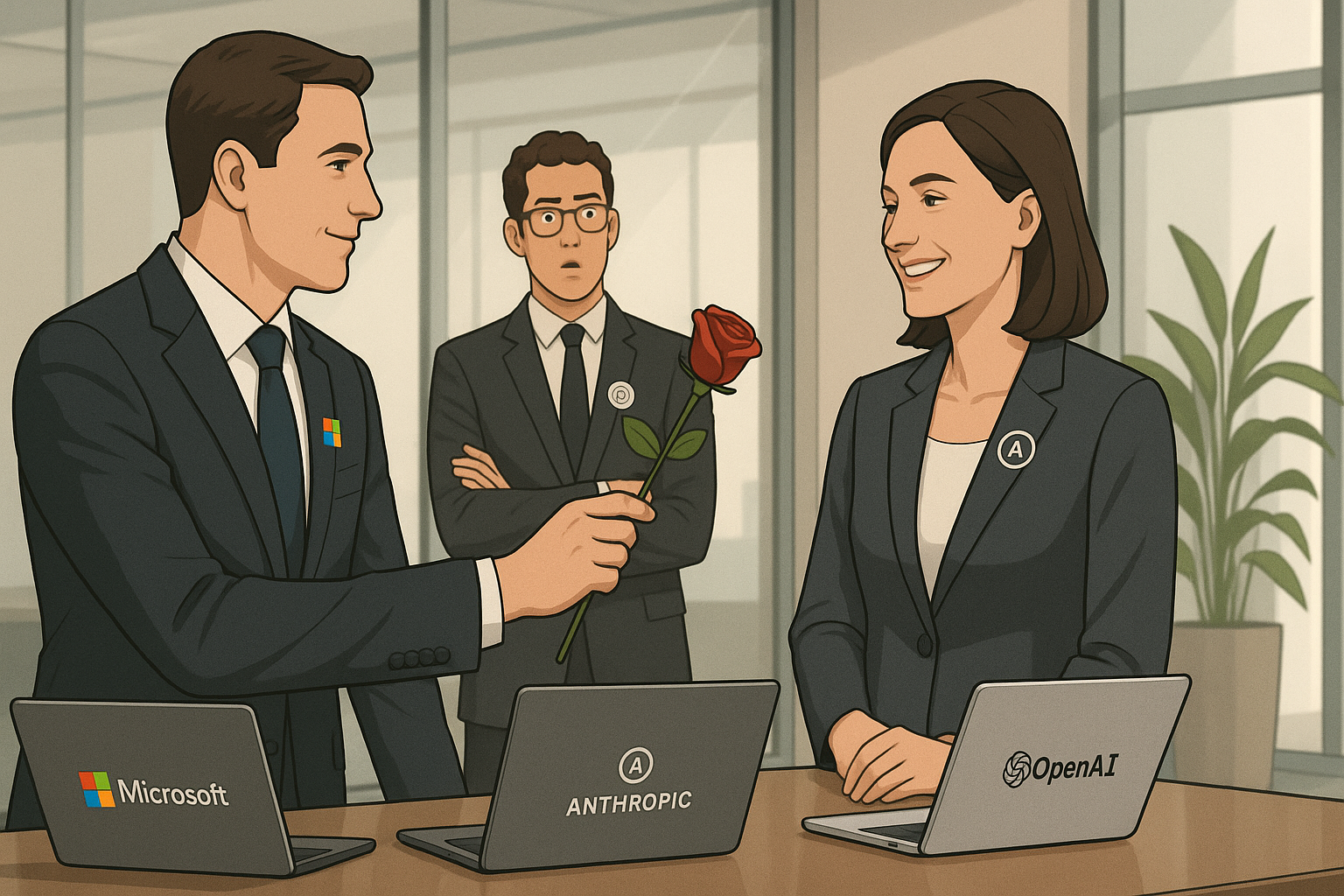Microsoft is apparently hedging its AI bets—and perhaps sending a not-so-subtle message to its primary partner in the process.
The tech giant has reportedly begun wooing Anthropic, creator of the increasingly popular Claude chatbot, in what looks suspiciously like the corporate version of downloading Tinder while claiming to be in a committed relationship. This apparent wandering eye comes at a particularly interesting moment for Microsoft, which has already sunk roughly $13 billion into OpenAI, its exclusive AI paramour until now.
I've been tracking Microsoft's AI strategy since before ChatGPT became a household name, and this move represents a significant shift in approach. The timing here is... well, let's just say it's pointed.
The Reuters report detailing Microsoft's plans to integrate Anthropic's technology into its product lineup dropped during what many industry observers (myself included) have described as a period of visible tension between Microsoft and OpenAI. Look, relationships are complicated—especially $13 billion ones.
"It's classic portfolio diversification, but for corporate partnerships," explained one tech analyst I spoke with yesterday, who requested anonymity to discuss sensitive business relationships. "Nadella isn't abandoning OpenAI, he's just letting them know he has options."
What's particularly telling about this development is what it reveals about the current state of the AI landscape. Despite all the breathless coverage of proprietary advantages and technological moats, we're clearly still in a phase where no single approach has definitively proven superior. Claude has shown impressive capabilities in handling longer contexts and following complex instructions—areas where even GPT-4 sometimes stumbles.
(Having tested both systems extensively, I can attest that each has distinct strengths depending on the task at hand.)
This Microsoft maneuver must feel like a cold splash of water for the folks at OpenAI. While they've enjoyed unprecedented access to Microsoft's computing resources—the oxygen that large AI models breathe—this development serves as a stark reminder of who holds the power in their relationship. It's the corporate equivalent of "accidentally" mentioning you bumped into an ex over brunch.
The broader pattern here deserves attention. Amazon has already inked deals with both Anthropic and AI21 Labs. Google has its own formidable in-house AI capabilities plus significant investments in Anthropic. We seem to be entering an era of AI polyamory, where exclusive partnerships give way to more open arrangements.
For Microsoft, this represents quite an evolution. Under Nadella's leadership, the company has transformed from the walled-garden approach that defined much of its history to an embrace of open-source software and interoperability that would've been unthinkable in the Gates or Ballmer eras. Now they're extending this philosophy to what may be the most important technology of the decade.
But there are complications worth considering.
Integration isn't simple or cheap—supporting multiple AI systems creates technical overhead and potential user confusion. How will Microsoft position these competing offerings? Will Claude be presented as complementary to GPT models or as an alternative? The messaging will require some delicate footwork.
One wonders if this public flirtation will accelerate OpenAI's rumored efforts to raise capital at a staggering $100+ billion valuation. Nothing focuses the mind on financial independence quite like watching your sugar daddy make eyes at the competition.
For Anthropic, this represents a massive win. Access to Microsoft's vast enterprise customer base and technical infrastructure could dramatically accelerate their commercial trajectory. It also potentially gives them additional leverage in their existing relationship with Amazon—nothing like a bidding war to improve your negotiating position.
The AI market continues to shift at breakneck speed. Strategic realignments that once might have taken years now happen in months or even weeks. Microsoft's move suggests that even the most established partnerships remain fluid as companies jostle for advantage in this rapidly evolving landscape.
In the end, Microsoft's dating around may just be smart business. After all, in technology as in romance, keeping your options open rarely hurts—though OpenAI might disagree. Perhaps this little jolt of jealousy is exactly what their relationship needed.
Or maybe it's the beginning of the end. In this AI soap opera, the next episode airs sooner than you think.
